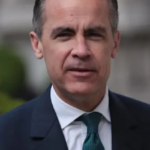As the Biden administration nears its conclusion, it leaves behind a legacy of significant consumer protections, many of which directly impact Americans’ daily lives. While Democrats lost power in Washington in part due to rising costs and discontent, the administration has implemented a series of new rules aimed at easing the financial burden on consumers.
One of the most notable changes includes a cap on insulin costs for Medicare recipients. Under a law passed by Democrats, Americans enrolled in Medicare will pay no more than $35 per month for insulin. Additionally, some pharmaceutical companies are expanding this price cap to benefit even more individuals. A new rule from the Consumer Financial Protection Bureau (CFPB) also caps overdraft fees at $5, offering relief to bank customers.
In addition to price caps, the Biden administration has made strides to enhance transparency and eliminate hidden costs. The Federal Trade Commission (FTC) has cracked down on “junk fees” for concert tickets and imposed new rules for short-term rental companies, requiring clearer cost disclosures. Online review manipulation is also being scrutinized, with fines now possible for businesses caught posting fake reviews.
Travelers have also seen increased protections, as the Department of Transportation now mandates airline refunds for certain cancellations. A new government website also helps passengers compare airline policies. Additionally, the Federal Aviation Administration has proposed a rule to help families with children sit together without extra charges.
Cable and internet customers are benefiting from new transparency measures, with the Federal Communications Commission (FCC) implementing clearer billing guidelines. A “nutrition label” for internet bills is set to make pricing easier to understand. The FCC is also working to combat scam texts, requiring mobile service providers to block suspicious messages.
The Federal Trade Commission (FTC) is also addressing subscription services, requiring that all online subscriptions include an easy “click-to-cancel” option. Meanwhile, the CFPB is working to remove medical debt from most credit reports, although that rule faces legal challenges.
Consumer advocates have praised these changes, noting that they reflect an ongoing trend toward increased transparency and fairness. Teresa Murray, director of the Public Interest Research Group, remarked that consumer protection in the U.S. is “becoming more transparent,” while Susan Weinstock, CEO of the Consumer Federation of America, called Biden the “strongest consumer protection president” in U.S. history.
Despite these efforts, the incoming Trump administration may seek to dismantle some of these regulations. Tesla and SpaceX CEO Elon Musk, a key figure in Trump’s government efficiency push, has expressed support for eliminating the CFPB, an agency established after the 2008 financial crisis.
As the political landscape shifts, consumer protections remain a central issue, with bipartisan support for measures that ensure transparency and fairness in the marketplace. These rules are expected to have lasting impacts on both businesses and consumers alike.









